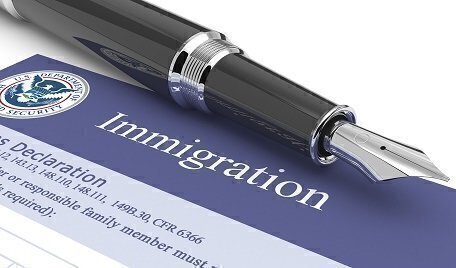The state of Washington, already successful in blocking President Donald Trump’s immigration limits imposed in late January, returned to federal court in Seattle on Monday morning in an attempt to apply that enforcement ban to the new, revised executive order adopted a week ago.
 Lawyers for the state asked U.S. District Judge James L. Robart to seek a response from the Trump Administration, and then hold a hearing on Tuesday. The revised immigration order is scheduled to go into effect just after midnight Wednesday.
Lawyers for the state asked U.S. District Judge James L. Robart to seek a response from the Trump Administration, and then hold a hearing on Tuesday. The revised immigration order is scheduled to go into effect just after midnight Wednesday.Judge Robart responded quickly, ordering the Trump Administration to file its views on the state's request by Tuesday afternoon. He said he had not decided whether to hold a hearing, but none would be held in any event before Wednesday.
Simultaneously, the state – newly joined by five other states – filed a fresh lawsuit to make sure that they have met any procedural requirements to pursuing a challenge to the second version of the Trump policy. Joining in that new case are California, Maryland, Massachusetts, New York and Oregon.
If Judge Robart takes up quickly the new plea to ban enforcement of the policy, that would mean three federal judges were weighing such requests on expedited schedules this week. The other challenges are moving along in Hawaii and Maryland.
Although the Trump Administration has conceded that it changed the original immigration rules for people from Mideast nations in order to overcome federal court rulings against those rules, it has argued in Judge Robart’s court that his enforcement ban does not apply to the second presidential order.
Washington’s attorneys have disputed that claim, and they did so again on Monday. But this time they made an explicit request for the Seattle judge to enforce his prior ruling against the revised approach, contending that it is really no different from the first.
The judge’s prior ruling, left undisturbed by the U.S. Court of Appeals for the Ninth Circuit, was not a mere “suggestion,” the state’s lawyers contended. When a policy is blocked by court order, the agency involved cannot evade it “by announcing that it will continue only some of the illegal” provisions.
The revised Trump order, like the first, imposes a 90-day ban on entry into the U.S. of foreign nationals from a list of Mideast nations with Muslim-majority populations, and a 120-ban on entry of refugees from any country. Both of those provisions are continued in the revised version, although that applies to six of those nations, not seven (Iraq has been dropped from the list).
In asking the Seattle judge to formally give permission for the five states to begin a new lawsuit, they raised most of the claims that were at issued in reaction to the original Trump, asserting challenges based on the Constitution and federal laws.
After the first Robart order was left as is by the Ninth Circuit Court, the Trump Administration chose to abandon its defense of that version in court, and thus opted not to try at that point to take the controversy on to the Supreme Court.
If the revised version is now blocked, that may well set up a government appeal to the Justices. The states may also try to go to the Supreme Court if their new challenges falter.
Legendary journalist Lyle Denniston is Constitution Daily’s Supreme Court correspondent. Denniston has written for us as a contributor since June 2011 and has covered the Supreme Court since 1958. His work also appears on lyldenlawnews.com,.Recent Constitution Daily Stories
For now, Judge Robart leaves open key immigration issueWhat legal pundits are saying about the new travel ban orderNew immigration order strikes reference to honoring Constitution





